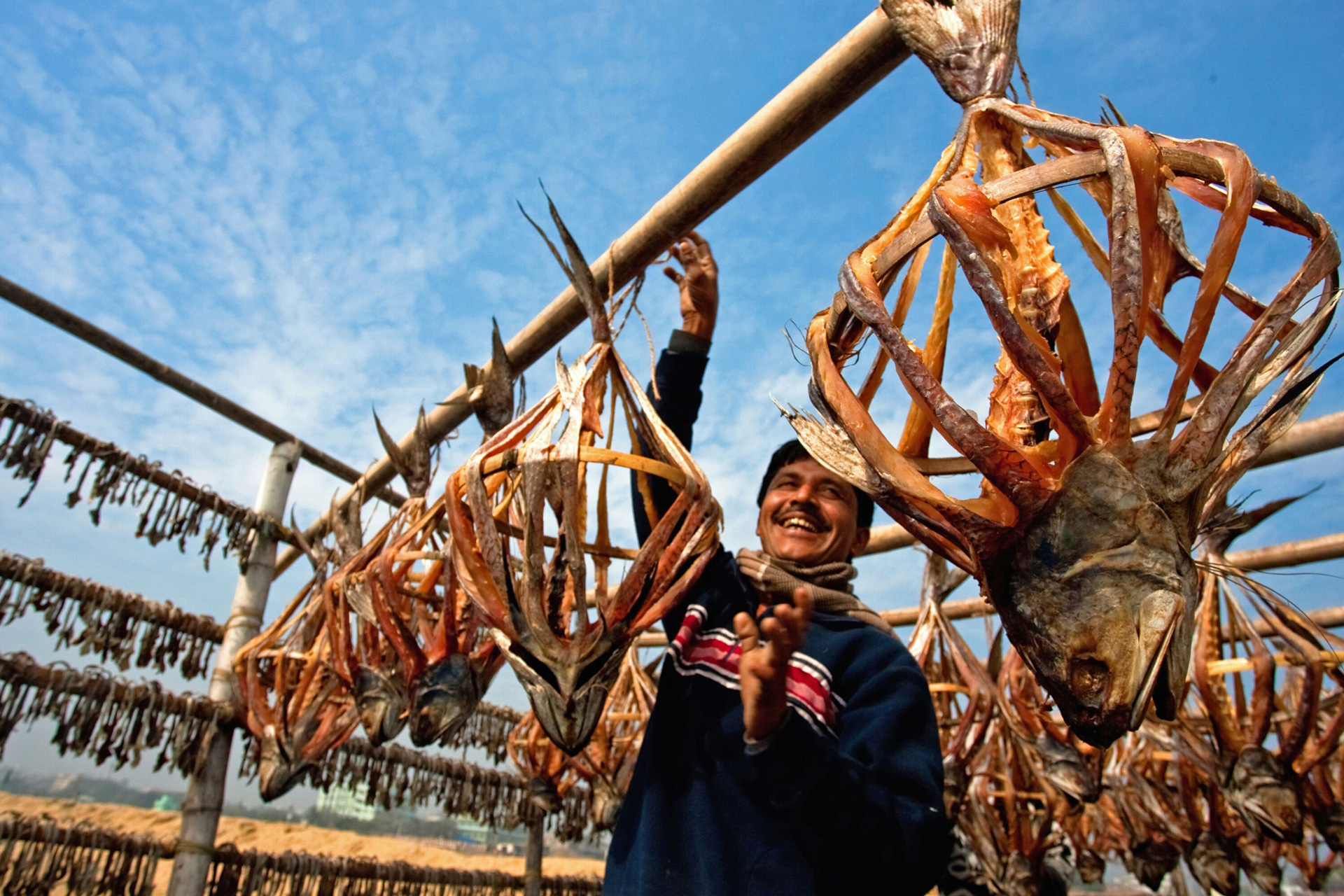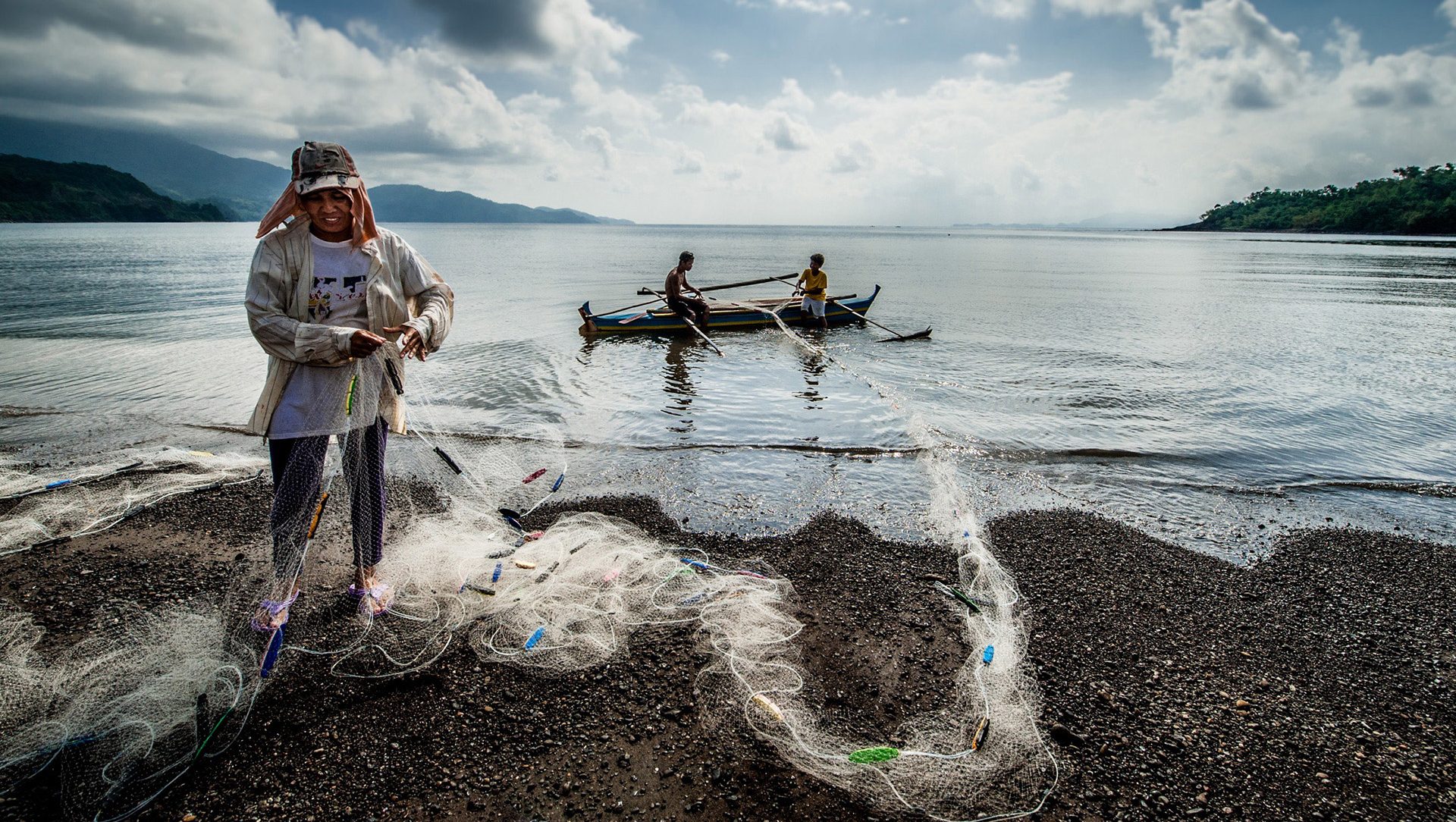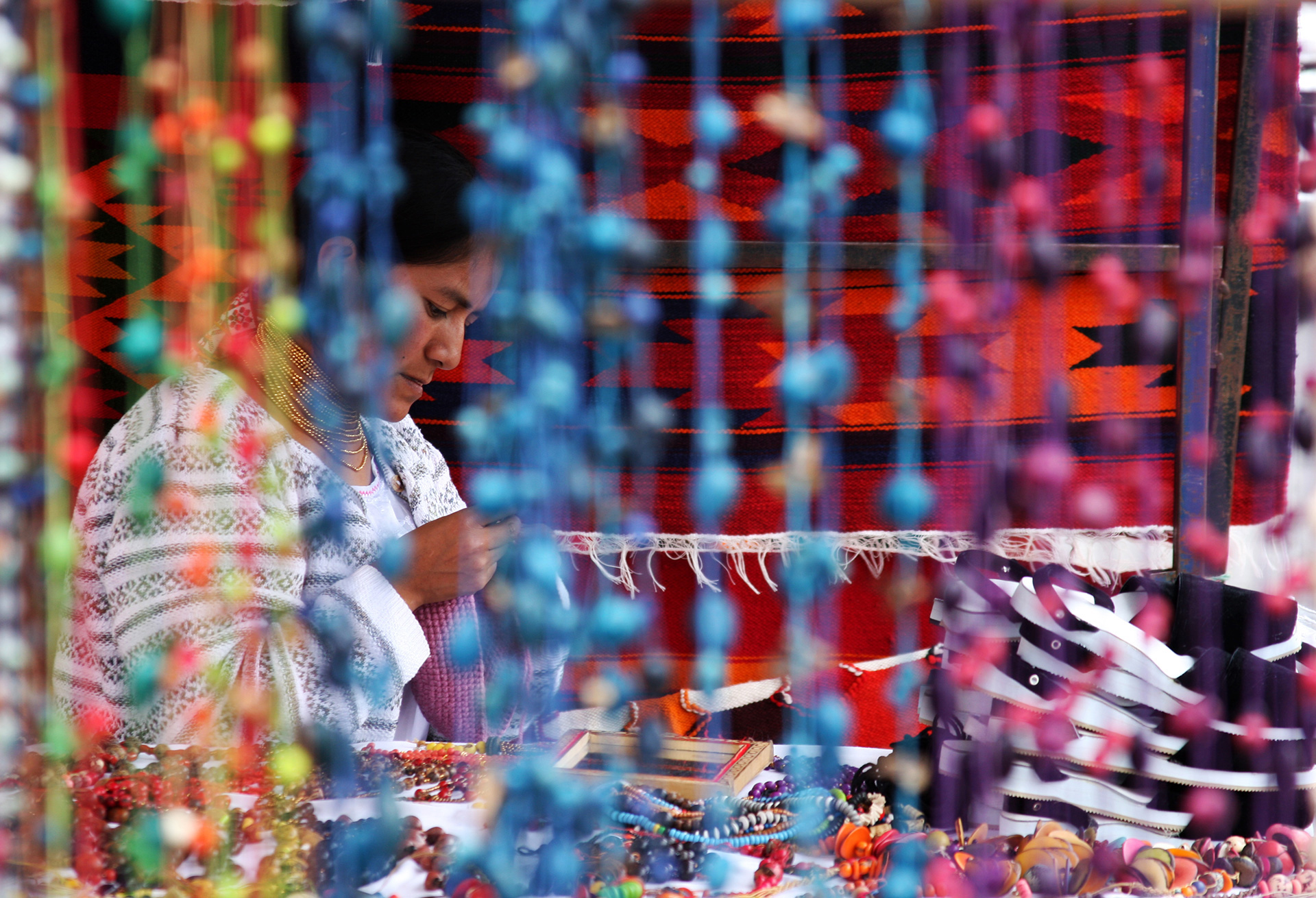Annual Reports
NpM Annual Report 2019
NpM is proud to present our annual report for 2019!
This will give an overview of our current accomplishments and trajectory in the future.
NpM Annual Report 2018
NpM Annual Report 2017
NpM Annual Report 2016
NpM Annual Report 2015
NpM Annual Report 2014
NpM Annual Report 2013
In October 2012 MicroNed and the Netherlands Platform for Microfinance merged into NpM, Platform for Inclusive Finance. 2013 was its first year as the new platform. An important change has been the active shift in focus: from microfinance to inclusive finance.
Find here the first Annual Report of NpM, Platform for Inclusive Finance (2013).
Enjoy your read!
NpM Multi-Annual Report 2013-16
G4IFF - Geodata
Geodata for Agtech and Fintech: What have we learned?
NpM has conducted research on the use of geodata to develop financial services to smallholder farmers. The aim of the report is to increase impact investor engagement through the example of six selected projects. The report presents positive results: higher production, increased repayment rate, improved accuracy of credit scoring, reduced processing time and reduced operational costs.
This report contains challenges encountered in the implementation of geodata applications, the role of technical, organisational and cross-cutting factors in the developements of geodata, and the investor’s perspective.
Geodata for Inclusive Finance: Data Privacy Study
In coordination with NpM, MFR conducted research on privacy risks in the use of geodata in digital financial services for agriculture. The research draws on MFR’s own experience in client data privacy, insight gained from case studies conducted (including interviews and review of documents) on FSPs which have integrated the use of geodata in their agriculture loan products, and desk research.
This report contains key issues identified regarding the collection, storage, use, and sharing of client geodata with a focus on best practices, challenges, as well as arising open questions.
Summary Report: Geodata for Inclusive Finance and Food
On 24 June, NpM hosted its seminar of “Geodata for Inclusive Finance & Food” in Nairobi. As a pre-day event to the SPTF and Smart Campaign’s Summit on “Inclusive Digital Future”, we heard from each of the winners of the NpM Innovator’s Challenge – Agri-wallet, Apollo Agriculture, and VanderSat – about their projects and the opportunities of geodata. Their insights gave way to an interactive Q&A session about the innovative practicality of their applications.
The second part zoomed in on the issue of data privacy when using geodata-based information. Isabelle Barrès of the Smart Campaign introduced major data privacy issues and the client protection principles. Ben Wellington of MicroFinanza Rating (MFR) then provided emerging good practices coming from case studies with FinTechs.
The seminar ended in lively group discussions reflecting on the great potential of geodata, but also the risks that the use of geodata-based information could carry.
Summary Report: Deep-dive in Geodata for Investors
Experts, investors, and practitioners gathered to explore the potential of geodata for inclusive finance and food security at the NpM expert meeting. Guest speakers from different sectors – financial inclusion, agriculture, and geospatial information – shared their know-how and four practitioners presented their geodata projects. This led to a lively discussion which NpM will follow up on.
Geodata and ICT Solutions for Inclusive Finance and Food Security: Innovative Developments – An overview
In light of a growing demand for food, smallholder farmers are crucial in supplying the world with sufficient food. In order to achieve this much needed growth, access to affordable and appropriate finance is key for smallholder farmers. On the other side, financial institutions see agriculture lending as risky and costly and do not easily lend to smallholder farmers. A study commissioned by NpM showed that lack of understanding of agriculture at the financial institution’s level leads to overestimation of the risks and costs involved. At the same time new technologies and Information and Communication Technologies (ICTs) are now being used to boost production. ICT information systems are able to address knowledge gaps at farmer level. New ICT solutions in banking assist to reach out to remote rural areas and new groups of smallholders. Through ICT applications in banking, costs of financial service delivery have reduced while outreach has improved. How can these developments in agriculture on the one hand, and finance on the other, be combined to improve finance for smallholders to the required levels?
Geodata for Inclusive Finance & Food: Inventory of Technology
This inventory of technology report gives an overview of 34 geodata applications and their potential added value for inclusive finance. The report states that for a long time the application of solutions involving satellite data was considered only appropriate for large, commercial farms but thanks to advances in mobile communication, availability of free data and the Geodata for Agriculture and Water (G4AW) Facility satellite applications become feasible for smallholders in developing countries. The main areas in which geodata can support financial inclusion are:
1. Support for financial operations,
2. Improving agricultural performance,
3. Provision of historical records,
4. Risk management.
Green Impact Finance
Green Impact Finance: Five Case Studies
The Green Impact Finance (GIF) Expert Group of NpM has issued 5 case studies in different countries as examples of GIF investment. These examples are about investments in PAYGO Solar companies, Agri-services, as well as in vehicle loans and services by NpM members.
Download the report to read a brief but informative description of the type of investments and companies.
Green Inclusive Finance: Status, Trends and Opportunities!
At the NpM annual conference organised with FMO and Hivos, Green Inclusive Finance was the topic. NpM asked Enclude to carry out a short research on the current status of the green inclusive finance sector. The inclusive finance sector traditionally focuses on creating social impact in developing countries by enabling access to financial services. Besides social impact, the sector increasingly attaches value to creating environmental impact as well. At this stage, the emphasis is put on assessing how also environment-conscious aspects can become a fixed focus or even determinant in investment decisions.
A more elaborated overview is included in the short research realised by Enclude which addresses the current status, trends and opportunities in the green inclusive finance sector.
Greening Financial Inclusion
This assessment of the status of greening inclusive finance across the members of the Dutch Platform for Inclusive Finance (NpM) has been undertaken by Enclude in order to determine which next steps should follow the 2015 signing of the Letter of Intent. The Letter was presented to the Ministry of Foreign Affairs, detailing the shared intentions of the NpM members to make policies and practices more green.
In a final workshop (14 September 2016) in which the draft findings of this survey were presented to the NpM members, it was agreed to ask NpM’s coordination and facilitation of the following next steps:
1. The definition of Green Inclusive Finance.
2. Risk return perspective vs. opportunities.
3. Case development: seen from triple value creation.
4. The role of technology.
5. More aligned indicators.
6. Regulations.
7. Awareness raising and needs identification.
Rural Finance
Financial Services for Women: Women’s participation in the maize and bean value chains in Rwanda
NpM commissioned a study to analyse the position of women in the maize and bean value chains in Rwanda, as well as the current and potential role of financial service providers (FSPs) in strengthening the positioning of women in these chains. The study used the women’s economic empowerment framework for the conceptual analysis, while similarly looking at overall financial inclusion indicators. This was all done within the context of a value chain analysis.
The value chain concept provided a framework for analysis and explained the different functions in the value chains for bean and for maize, including the roles of men and women. The analysis showed how the available financial services not only reached women but also benefited and empowered them.
A desk study, which accompanied the fieldwork and value chain analysis, showed that the enabling environment in Rwanda is very conducive to the promotion of women in agriculture.
Reach, Benefit and Empower women with Financial Services – Case-based learning paper
NpM, Platform for Inclusive Finance, analyzed three cases on women’s access to financial services in three different countries:
1. Saving and credit cooperatives (SACCOs) in Ethiopia;
2. Services provided by TYM, an MFI in Vietnam;
3. Financial services provided to female farmers in the maize and beans value chains in Rwanda.
With this paper, we showcase the importance of appropriate financial services for women to increase female entrepreneurship in agriculture and to secure the highly necessary agricultural growth. We aim to encourage the NpM members (inclusive finance investors) and other professionals working in the financial sector to ensure that women are reached by financial services, but also to ensure that women benefit and that they are empowered.
Financial Services for Women: Agri-finance Products for Female Farmers in Vietnam
NpM, Platform for Inclusive Finance commissioned a study on suitable agri-finance products for female farmers in Vietnam as part of a broader study on the promotion of women entrepreneurship in agriculture through access to finance. The NpM rural finance working group observed that women often do not access financial services in agriculture and, in particular, that larger loans are needed to continue their participation in the agricultural value chain.
This paper presents the results of the study aimed to analyse if and how women encounter constraints to effectively access financial services in agriculture and if they benefit effectively from accompanying non-financial services. The study explored the potential strategies for women to access larger loans. Furthermore, it intends to explore the business case for financial institutions to include women in larger lending segments. The study distinguished three categories of female rural clients: (1) poor rural women, (2) female farmers on family farms and (3) female entrepreneurs of micro, small and medium enterprises. The study focusses on the second category.
Financial Services for Women: Women’s Participation in Savings and Credit Cooperatives in Ethiopia
NpM commissioned a study on women’s participation in financial cooperatives as part of a broader study on promotion of women entrepreneurship in agriculture through access to finance. Our rural finance working group observed that women often do not access financial services in agriculture and, in particular, that larger loans are needed to continue their participation in the agricultural value chain.
This paper presents the results of the case study “Women’s participation in savings and credit cooperatives in Ethiopia”. It describes the experiences of female members and leaders of two Savings and Credit Cooperatives (SACCOs) in Ethiopia, Lelewut Eninesa and Wub Bahil. The SACCOs were selected out of the SACCOs that are supported by the ICCO-Terrafina Microfinance capacity building program funded by the Church of Sweden.
The study started with a desk review of recent studies on women’s participation in SACCOs, followed by a field study in the end of 2017. For the analysis, we used the ‘reach, benefit and empower’ framework. This framework points out that simply reaching women (e.g. by including them as clients, as member of a cooperative or in trainings) does not ensure that they will benefit or that they will be empowered. In general, projects should aim to go beyond merely reaching women and strive to empower them to strengthen their ability to make strategic life choices and to put those choices into action.
Full Report: Finance for Smallholders: Opportunities for risk management by linking financial institutions and producer organisations
Via one of NpM’s working groups, a research has been carried out titled: “Finance for Smallholders: Opportunities for risk management by linking financial institutions and producer organisations”
The NpM Rural Finance working group focuses on improving its members’ activities to increase access to financial services in rural areas.
In this light, the group decided in February 2014 to research which bottlenecks exist to finance smallholders, thereby identifying opportunities for risk management through linking financial institutions and producer organisations, in the countries Ethiopia, Mali, Rwanda and Uganda. The research has been carried out in cooperation with AgriProFocus (APF) and the Wageningen University and Research centre (Wageningen UR), and is funded by the Food & Business Knowledge Platform (F&BKP).
The NpM Rural Finance working group consists of the following NpM members: Cordaid, FMO, Hivos, ICCO, ICCO Terrafina Microfinance (formerly: Terrafina Microfinance), Rabobank Foundation and Oxfam Novib. ICCO Terrafina Microfinance coordinates the working group. The report has been realised in coordination with other stakeholders who are active in this field on an international level: Agriterra, the European Microfinance Platform (e-MFP) and the Consultative Group to Assist the Poor (CGAP).
Case Studies Report: Finance for Smallholders: Opportunities for risk management by linking financial institutions and producer organisations
Summary Report: Finance for Smallholders: Opportunities for risk management by linking financial institutions and producer organisations
RAPPORT SUCCINCT: Des financements pour les petits exploitants: Mettre en relation les institutions financières et les organisations de producteurs pour une meilleure gestion des risques
La NpM a sélectionné 14 projets financés par NPN ou AgriProFocus (APF) en Éthiopie, au Mali, au Rwanda et en Ouganda pour la manière innovante dont l’accès au financement a été créé pour les petits exploitants, montrant qu’une totale collaboration est fondamentale. Dans cette étude, des projets ayant déjà fait leurs preuves ont été sélectionnés. Le projet de recherche a été élaboré avec ICCO Terrafina Microfinance (TMF), Agriterra, la plateforme européenne de la microfinance (e-MFP), le Consultative Group to Assist the Poor (CGAP) et l’Université et le Centre de recherche de Wageningen (Wageningen UR). La Food & Business Knowledge Platform (F&BKP), la NpM et l’APF ont financé l’étude.
RAPPORT COMPLET: Des financements pour les petits exploitants: Mettre en relation les institutions financières et les organisations de producteurs pour une meilleure gestion des risques
La NpM a sélectionné 14 projets financés par NPN ou AgriProFocus (APF) en Éthiopie, au Mali, au Rwanda et en Ouganda pour la manière innovante dont l’accès au financement a été créé pour les petits exploitants, montrant qu’une totale collaboration est fondamentale. Dans cette étude, des projets ayant déjà fait leurs preuves ont été sélectionnés. Le projet de recherche a été élaboré avec ICCO Terrafina Microfinance (TMF), Agriterra, la plateforme européenne de la microfinance (e-MFP), le Consultative Group to Assist the Poor (CGAP) et l’Université et le Centre de recherche de Wageningen (Wageningen UR). La Food & Business Knowledge Platform (F&BKP), la NpM et l’APF ont financé l’étude.
Summary Report: Expert Meetings on Finance for Smallholders
Finance for Refugees
Expanding Financial Inclusion of Refugees in Uganda
Lack of access to financial services can represent a major impediment to income opportunities and economic welfare of individuals, particularly for the poor and vulnerable, and those engaged in the informal economy. Affordable access to financial services can help refugees cope with negative shocks, reduce exposure to risk, and stimulate economic activity at community levels.
In order to develop more inclusive financial markets it is necessary to address the specific constraints in each context that prevent an efficient match between demand and supply of financial services, limiting access, use and quality of available services. While legal and policy barriers remain, the biggest constraint to increased financial inclusion of refugees is a familiarity gap between refugees and FSPs, fuelled by ingrained stereotypes and preconceived ideas. The support system around FSPs, while growing, remains fragmented, and many FSPs continue to be constrained by a lack of (easy) access to the information, guidance and support needed to identify, assess, and potentially serve refugees as customers.
This state of play paper aims to provide a brief overview of the global potential market scope of refugees, and review the progress to improve access to finance by refugees in the past few years. Remaining barriers are briefly described, including policy clarity, relevant information, legal barriers, and funding. This list of gaps is by no means complete but it is hoped that the International Conference Finance for Refugees – Making it Work can contribute to filling the void.
Finance for Refugees: the State of Play
Lack of access to financial services can represent a major impediment to income opportunities and economic welfare of individuals, particularly for the poor and vulnerable, and those engaged in the informal economy. Affordable access to financial services can help refugees cope with negative shocks, reduce exposure to risk, and stimulate economic activity at community levels.
In order to develop more inclusive financial markets, it is necessary to address the specific constraints in each context that prevent an efficient match between demand and supply of financial services, limiting access, use and quality of available services. While legal and policy barriers remain, the biggest constraint to increased financial inclusion of refugees is a familiarity gap between refugees and FSPs, fuelled by ingrained stereotypes and preconceived ideas. The support system around FSPs, while growing, remains fragmented, and many FSPs continue to be constrained by a lack of (easy) access to the information, guidance and support needed to identify, assess, and potentially serve refugees as customers.
This state of play paper aims to provide a brief overview of the global potential market scope of refugees and review the progress to improve access to finance by refugees in the past few years. Remaining barriers are briefly described, including policy clarity, relevant information, legal barriers, and funding. This list of gaps is by no means complete but it is hoped that the International Conference Finance for Refugees – Making it Work can contribute to filling the void.
Microfinance
Caveat Venditor: Towards a Conceptual Framework for Buyer Selection in Responsible Microfinance Exits
As microfinance equity sales grow, so does the importance of selecting a suitable buyer – the obligation on the seller to exit ‘responsibly’. This research project involved consultation with various equity investors, to ascertain what is current industry practice on buyer selection processes, and the priority that investors give to different criteria in selecting a buyer. We find a consensus around a process which first excludes clearly unqualified buyers but, beyond that, gives primacy to the financial offer. A minority view places more importance on protecting the social mission of the MFI, and ensuring the new buyer provides the necessary strategic value for the MFI to grow congruent with its social mission. We have developed a conceptual framework for buyer selection that imports elements of both approaches, and can guide investors and their advisors in future exits.
Client Protection in Microfinance: The Current State of Law and Regulation
EY, in cooperation with NpM, carried out an exploratory research on client protection. Josien Sluijs, director NpM: “The goal of the research was to identify how the guidelines that have been self-imposed by the sector, are actually facilitated by law and regulation, thereby focusing on overindebtedness, responsible pricing and transparency.”
The research, that includes cases of 12 countries worldwide, has incorporated two types of MFIs: the ones with a banking license and thus deposit taking, and those which are not taking deposit.
In addition, to complete the report, NpM created a ‘Bookmark’ including more general information on law and regulation with regard to client protection. For the ‘Bookmark’ with links to extra sources, click here.
Paying Taxes to Assist the Poor? Balancing Social and Financial Interests
The report addresses tax avoidance related to inclusive finance and its relevance in the global discussion. In the report the NpM members have agreed that they “should, in principle, invest in the country where the activities take place. Second, NpM and its members hold that there is no justification for profit shifting or the deliberate structuring of companies – including the use of SPVs – with the sole purpose to avoid taxation. Nevertheless, NpM acknowledges that investors may have sound reasons for investing in developing countries through SPVs set up in jurisdictions that are particularly apt for attracting and transferring capital to microfinance entities in developing countries”.
A Billion to Gain? Dutch Contributions to and Trends in the Microfinance Sector – 2014
In 2012 NpM and ING presented the ‘A Billion to Gain?’ study on Dutch contributions to and trends in the microfinance sector. NpM took the initiative to update this information and made an analysis of the data resulting from the CGAP Funder Surveys 2010, 2011, 2012 and 2013. The ING Economics Department has, in cooperation with Israel Unger (researcher involved in the last two studies of ‘A Billion to Gain?’), checked and translated the analysis into a full report. The editorial board included members of the Ministry of Foreign Affairs (IOB), Triple Jump, ING and NpM.
One of the interesting outcomes is that despite diminishing government support and turbulence in international financial markets, the Dutch investments grew from € 2.1 billion in 2010 to € 2.5 billion in 2013. It is expected that this trend will continue and that the Dutch microfinance sector will grow with 9% in 2014 and 10% in 2015.
To read the full report, click below. Please note that the report involves a correction (erratum) made based on some findings. There is also an infographic about this report available.






